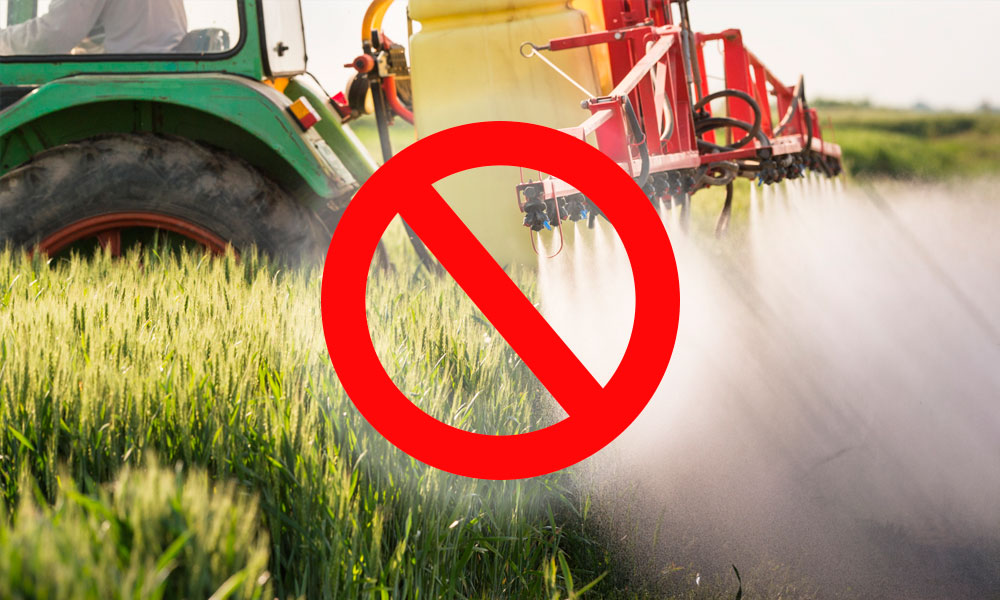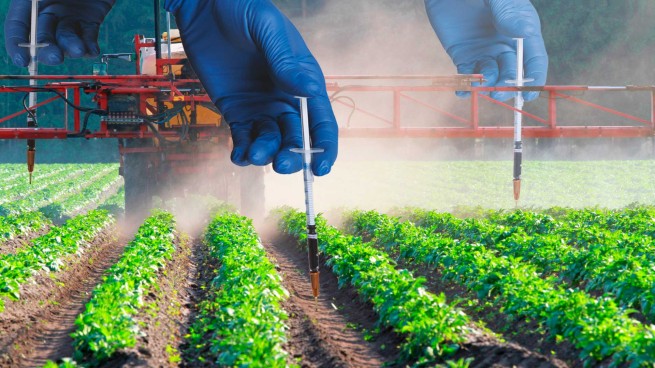Research activities are being carried out by Greek institutes in search of better methods for growing crops.
Pesticide use can be halved, and the goal of dramatically reducing pesticide residues (up to 80%) is also realistic. This prospect is especially encouraging because the farmer can produce without exhausting himself financially or depleting the land by bombarding him with chemicals.
The flagship action “Innovative Plant Protection and the Environment” will contribute to achieving these goals. Its mission is to develop modern methods, innovative products and new crop protection strategies for the sustainable production of fruits, vegetables and other agricultural products. This is a major research project with a duration of 28 months and funding of 5,000,000 euros (from the Recovery Fund), in which the Agricultural University – Γεωπονικό Πανεπιστήμιο (as coordinator), ΕΛΜΕΠΑ, ΕΛΓΟ “ΔΗΜΗΤΡΑ”, Phytopathological Institute of Benaquio – Μπε participate νάκειο Φυτοπαθολογικό Ινστιτούτο, ΑΠΘ, Democritus Institute, etc. The goal is to break the vicious circle of total spraying of fields with pesticides.

“The production of agricultural products also requires the use of various drugs. The question is how to reduce their number and make all production environmentally friendly. Today, scientific knowledge exists, including precision agriculture, a combination of old and new methods and technologies to achieve reductions in pesticide use. But we must move towards smart/technological plant protection,” says Yiannis Vontas, director of the ITE Institute of Molecular Biology and Biotechnology, professor of pharmacology at the Faculty of Agriculture and coordinator of the symbolic action.
In fact, a research program (called “Super Pests”) completed a year ago at the Department of Agriculture achieved a 50 percent reduction in costs and an 80 percent reduction in pesticide residues after implementing integrated pest management in the field.
As part of the flagship action, two pilot programs will be implemented: one in tomatoes and one in an orange grove. Of particular importance, according to Mr. Vondas, is the creation of a plant protection network in Greece that will involve everyone involved in the field so that they can continue to work together in the future and seek appropriate answers.
In the work of any agricultural enterprise, they play an important role chemical plant protection products. A number of chemicals have a significant effect on increasing the efficiency of crops. Chemical plant protection helps combat the spread of diseases caused by insect pests and the growth of weeds that cause great damage to the crop. Pesticides allow you to collect many times more grain, fruits, and vegetables and improve the quality of agricultural products and extend shelf life. Chemical plant protection products and methods are divided into several groups based on the nature of their effects:
- Herbicides work to destroy weeds.
- Fungicides are used to control fungal infections.
- Insecticides kill insect pests.
Most of the plant protection products are dangerous to humans, so working with pesticides requires compliance with safety measures, the use of special equipment and agrotechnical requirements.







More Stories
Greece: growth in deposits from households and businesses in March 2024
How much will it cost a Greek family to celebrate Easter?
EU employment record: Greece "stuck" in a low position